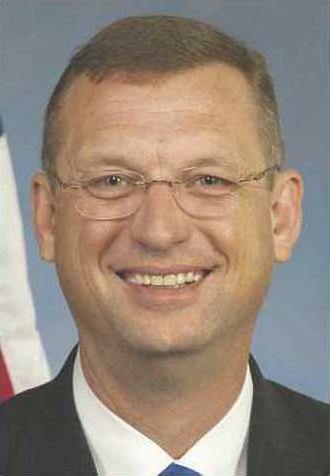As Amazon looks nationwide for a second headquarters, Georgia’s state leaders are trying to paint the state in the best light possible for the internet giant.
Some lawmakers have gotten queasy about pushing social issues like the Religious Freedom Restoration Act, which was proposed but blocked in 2017, warning that it could lead the retailer to locate elsewhere.
But while they debate in Atlanta how to lure Amazon, many rural residents of the state find it difficult to use Amazon’s services because of slow internet.
Rural broadband is a multibillion-dollar problem, and not a new one for the federal government.
In the second round of capital funding for telecommunications growth, the Federal Communication Commission allocated $1.7 billion nationwide to fund internet expansion in targeted areas with the Connect America Fund. The money went to just 10 large telecommunications companies, groups like AT&T, Verizon and Windstream.
In North Georgia, the FCC shows $221,162 in available funding to improve internet service in Dawson County, $282,730 for Lumpkin County, $413,980 in Union County and millions more throughout the rest of the region.
Almost all of that money has gone to Windstream. The FCC’s current definition of high-speed internet is a 25 megabit per second download speed and a 3 megabit per second upload speed.
The Connect America Fund required Windstream to expand service of 10 mbps download and 1 mbps upload speed to 40 percent of the locations identified in the FCC map, according to Windstream spokesman Scott Morris.
“And we have done that,” Morris said.
But North Georgia residents and lawmakers say they’re not seeing enough improvement in rural internet speeds, which are viewed as an avenue to economic development sorely needed in areas losing population to cities.
State lawmakers, through rural development commissioners studying the issue, have identified rural internet speeds as a bottleneck for growing businesses, health care providers and improvements in education.
This legislative session, the Georgia General Assembly is expected to take up the cause of rural broadband. A study from 2013 shows the state collects $33 million in taxes from sales of telecommunications each year. A proposal to exempt that equipment from sales taxes as an incentive has been considered leading up to the 2018 session.
Rep. Doug Collins, R-Gainesville, has honed in on the issue as well. He was critical of the Connect America Fund last week, saying it focused too much cash on large companies and didn’t provide enough oversight on companies getting the money, companies like Windstream.
“They’re investing their money where they actually have competition and they’re blowing off areas where they don’t,” Collins said. “The requirements are more end-reporting requirements instead of in-process reporting. You may go through the term of the money and then find out at the end where it was put.”
He said White, Habersham, Jackson and Lumpkin counties “are some of our top problematic” areas.
Windstream’s president of Georgia operations, Jarrod “J” Berkshire, disagrees with the assertion the company is misspending federal funds, and said it’s met the requirements of the Connect America Fund and submitted reports based on those requirements.
“We’ve answered the congressman’s questions when asked. We’ve met the guidelines set forth by the FCC,” Berkshire said. “The program was not designed to meet every single customer in every single place in every single area, and it can’t. There’s just not enough money in the fund to do so.”
Viewed from any angle, the infrastructure needed to provide faster internet to areas outside of urban hubs is expensive — and growing a system through multiple counties and municipalities is complicated.
Fiber optic cable, which currently delivers the fastest internet speeds available, can cost as much as $40,000 a mile on the edges of a network, according to research from the Georgia House of Representatives’ Rural Development Council.
“There’s a lot of theories that we need to place fiber everywhere to every location,” Berkshire said. “It is cost-prohibitive, and for the taxpayers to say we should pay that much for these two people, I don’t know that’s the right business decision for the government or a business entity.”
Collins said he recognizes the limitations of the Connect America Fund and is now sponsoring the Gigabit Opportunity Act, which will provide tax incentives to any business — not just those identified by the FCC — that provides high-speed internet service in rural areas.
“We’re looking at the competition factor that’s just not present right now in many of our rural areas not just in North Georgia, but all over the country,” Collins said. “We’re not asking for somebody who decides to build 20 miles off the grid on the backside of a mountain to have 100 gigabit internet. But what we are seeing is if you’re sitting just outside of a city, you ought to get more than 2 mbps.”

